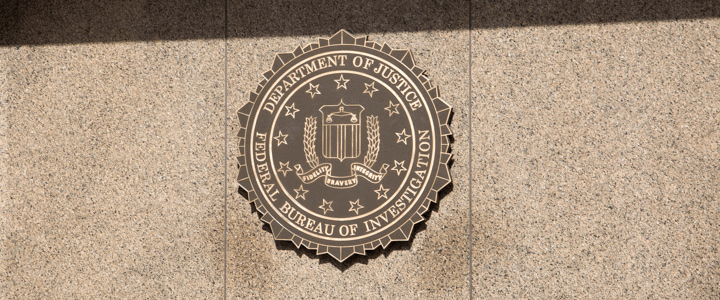

Security Clearance
No doubt if you’re sitting over in headquarters of the FBI or in one of their many field offices you are wondering what FBI Director Christopher Wray thinks about its background investigations process, including the “customers” it provides investigative services to.
The FBI’s first customer is the FBI, their own applicant and employee pool. They conduct their own background investigations, assign special agents to the role and have evolved an entire cadre of contractors who form the BICS (Background Investigation Contract Services).
I spoke to Patrick Gray, a retired FBI special agent, who conducted more than one background investigation on behalf of the FBI, and who during his time at the Washington Field Office was assigned to the “applicant squad.”
He confirmed what many news agencies have – the White House is a prime customer – but they are not the only customer. The FBI also conducts background investigations for others within the executive and legislative branches of government
As we learned in the case of Rob Porter, the process is in most ways similar to what you would expect from any background investigation. An individual is identified for a position, say at the White House. The White House Personnel Security Office does the initial suitability review based on their own criteria. If found suitable, they invite the individual candidate to submit an SF-86, and the process for obtaining a security clearance is initiated.
Every applicant signs a release allowing for the investigative entity to dig into their credit reports, as well as civil and criminal court records. They are also afforded a security clearance interview. The submitting entity owns the investigation (for applicants and employees of the FBI, the FBI adjudicates their own) the White House does their own adjudication.
As stated during the testimony of FBI Director Wray before the Senate Special Committee on Intelligence (SSCI), the FBI conducted the background checks for President Trump’s White House staff, to include Rob Porter. Director Wray commented how the FBI provided preliminary updates as the background investigation continued and then provided the completed background investigations file to the White House Security Office in January 2018. The content of the file may be derogatory or benign. It matters not, the ownership, and decision to grant or deny the clearance, lies with the White House.
Gray explained that in the case of an FBI applicant, the individual’s case is assigned to an individual case agent and the content is reviewed. Based on the review, requests for interviews are disseminated based on geography and family, colleagues and references are interviewed. In addition, social media has opened another optic into individual’s lives, expanding the pool of potential individuals with whom to interview.
The purpose of these interviews is to determine trustworthiness and suitability/ability to safeguard the nation’s secrets.
On February 16, White House chief of staff, John Kelly, issued a five-page memo outlining “Improvements in the Clearance Process” which will have a direct effect on the FBI and their background investigations. These improvements include:
The FBI is not blindsided by the Chief of Staff’s memo, indeed Kelly met with the FBI who agreed to “assist us (White House) with reviewing and improving our protocols, and we have accepted their assistance.”
Kelly goes on to direct the FBI and White House to work together and formalize the delivery and notification process between the two organizations with an updated Memorandum of Understanding between the Department of Justice and the White House regarding background investigations.
Additionally, he directs “background investigations of potential Commissioned Officers should be flagged for the FBI at the outset and then hand delivered to the White House Counsel personally upon completion. “ Interestingly, the FBI officer who delivers this information will be required to “verbally brief the White House Counsel on any information in those files they deem to be significantly derogatory.”
He further admonished the need to reduce the time lag between discovery of derogatory information to informing the White House be reduced to 48 hours. Kelly asked that the White House consult with the FBI to make it so.
Interim clearances for White House personnel are now on a 180-day clock with an option to extend for an additional 90 days, providing no significant derogatory information has been discovered. And effective February 23, no interim clearances will be granted to individuals for access to Top Secret or SCI-level materials for individuals whose clearances “have been pending since June 1, 2017 or before.
Finally, monthly reviews will occur for those long-standing adjudications (We note, the President’s advisor and son-in-law, Jared Kushner would fall into this category.).
Kelly closes his memo with the direction that working group will be formed and comprise – White House Chief of Staff, Counsel, National Security Advisor and Chief of Staff of Operations, along with the Director National Intelligence, Director FBI, Attorney General of the United States, Director CIA and Department of Defense and their counsels to “study the clearance process generally and to take action to streamline, harmonize and modernize standards across the Executive Branch.”
This may improve the security clearance processes of the White House and FBI, but omitting the Office of Personnel Management from the discussion fails to address the much greater issue with the security clearance process. Kelly hinted to the need for standardization in his memo. As the executive agent of the security clearance process, there is a real chance for the executive branch to bring about process improvements for everyone – including the backlog of 700,000 clearances overseen by OPM.